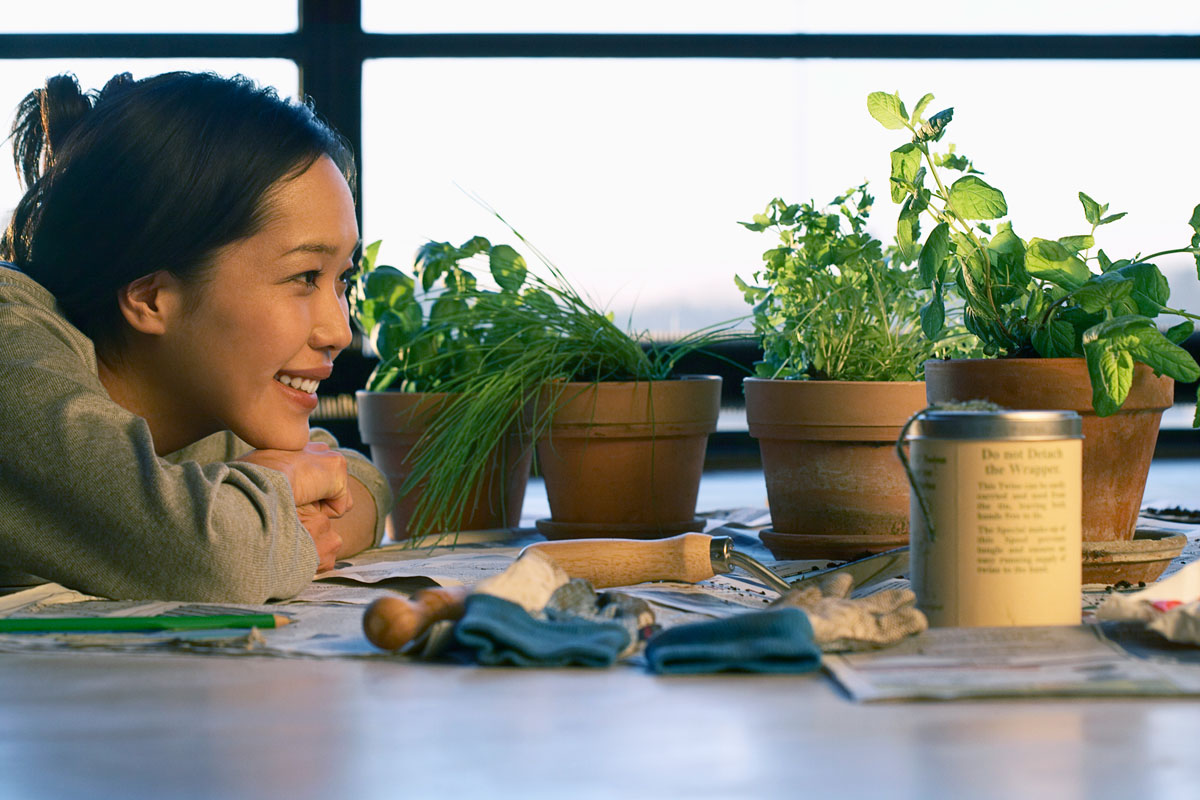Students should spend two minutes each day talking to a plant
A horticultural therapy specialist explains the health and wellness benefits of interacting with nature.
According to the Canadian Horticultural Therapy Association (CHTA), “Horticultural Therapy (HT) is a formal practice that uses plants, horticultural activities, and the garden landscape to promote well-being for its participants.”
In 2020, the International Journal of Environmental Research and Public Health published a study that evaluated the effectiveness of an eight-session HT program for people with schizophrenia. Researchers of psychiatric rehabilitation in Hong Kong had hypothesized that, for those with mental disorders, interactions with plants—whether through gardening or an admiration for nature—could alleviate stress and promote interpersonal and intrapersonal health.
After comparing the participants’ statuses before and after the test, the researchers found “higher levels of mental well-being,” but did not see significantly reduced stress levels or increased social exchange, possibly because the participants started with low-stress levels.
The researchers then asked a focus group of eight participants to reflect on their experience with HT. They learned to practice patience and thinking skills—psychological benefits of horticultural activity. Many also “shared group photos, logbooks, and end products with peers and family members,” suggesting some social enhancement. In terms of spirituality, the participants “said they had learned to appreciate the miracle of life” through their observations of the plants. “Some participants gave examples like outdoor plants could grow better and stronger after severe storms, and it is pleasurable to take care of plants as they grow up.”
How?
When people explore the things which draw them to nature, they learn from what they see. “Remark on its plentiful sunshine, its near potential bloom, or its surrounding plants holding it up, then reflect, ‘Well, how can I relate to that? What do I have in my life that may be supporting me in a way I hadn’t thought of before?’” says Cheney Creamer, the Chair of the CHTA in an interview with The Medium. “Find a plant that you’re drawn to and then start to build a little relationship with it,” she suggests. “Have a conversation with that plant.”
Cheney encourages us to practice this simple exercise daily for long-term impact. “I need to find some small way every day to have a relationship with some life outside of myself,” she shares.
Cheney understands that students might find it difficult to break the endless pattern of hyper-focused overwhelming thoughts (directed attention fatigue) they often experience. She recommends that students find “a sit spot” or “a forest trail that is a loop that you can walk around” to develop a relationship with some plants and then to observe them: “look up, look around, and look often.”
Cheney consults many individuals with “eco-anxiety,” an emerging type of anxiety over safe access to fresh, healthy food and clean water though nature. Watching nature’s regenerative powers in gardening, as Cheney suggests, renews that hopeful feeling, leading people to ask: “How can my little choices really make an impact on a larger global scale?”
One green choice that students can make is to purchase a CHTA student membership for the annual price of $55. This membership includes access to various resources, such as educational HT webinars. Certain months also offer the opportunity to join book or film clubs about nature-based books, films, and documentaries.
If interested, sign up for the newsletter developed for Cheney’s biophilic wellness business, One Green Square—named after the fact that “a glimpse of a small green square for two seconds has been shown to increase creativity by up to 20 per cent.”


A very overlooked method of therapy, it’s easy to see that taking care of plants reinforces a critical life lesson: through hard work and constant investment, you will develop something that you can admire. You found a way to back up a seemingly ridiculous title!